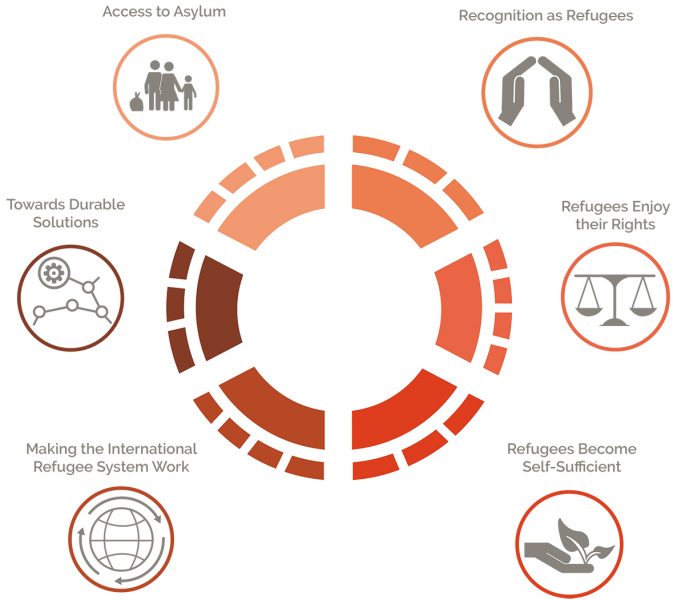January 11, 2018
The preparatory work for the Refugee Response Index (RRI) has been completed. Starting in early 2017, the preparation entailed a thorough analysis of refugee legal and policy developments, including the review of international proposals to improve the global refugee system from the perspective of state action. This preliminary phase has allowed us to shape the RRI analytical framework, including the identification of relevant elements that will inform the qualitative and quantitative indicators that comprise the index. It is envisaged that we will conduct an online survey among refugee experts and practitioners, in order to assess the relevance and feasibility of identified indicators.
The RRI preliminary work was carried out through extensive consultations with leading experts in refugee law and policy from key institutions such as UNHCR, ICRC, World Refugee Council and CARE International. DARA is currently reaching out to new partners as we move toward the pilot phase.
The RRI analytical framework, which is currently being fine-tuned, was defined in June 2017. It comprises 6 pillars that assess how states;
- Behave towards refugees in flight
- Provide legal recognition of their status
- Uphold the political, social and economic rights of refugees and facilitate coverage of their needs
- Create conditions for their self-sufficiency and integration, including challenging negative public misperceptions
- Contribute to the international refugee system
- Facilitate durable solutions.
RRI pillars
In parallel, the preliminary identification of elements relevant for shaping qualitative and quantitative indicators was finalized, in consultation with leading experts. UNHCR officials have been extensively involved in discussions regarding the analytical framework, indicators and the methodological approach. In May, 2017 DARA hosted a focus group in Madrid which included expert representatives from relevant institutions in the sector, such as the Oxford Refugee Studies Center, the German Development Institute (DIE), the The European Council on Refugees and Exiles (ECRE) , the Refugee Law Reader, Bertelsmann Stiftung, International Association for the Study of Forced Migration (IASFM) and the National Integration Evaluation Mechanism (NIEM PROJECT).
Currently, the RRI is in the pilot phase which involves defining, evaluating and eventually adapting the indicators comprised in the index. This phase also includes further consultation on the indicators with a broad range of experts, followed by data collection, review, calibration and validation processes for those countries covered in the pilot phase.

Share this